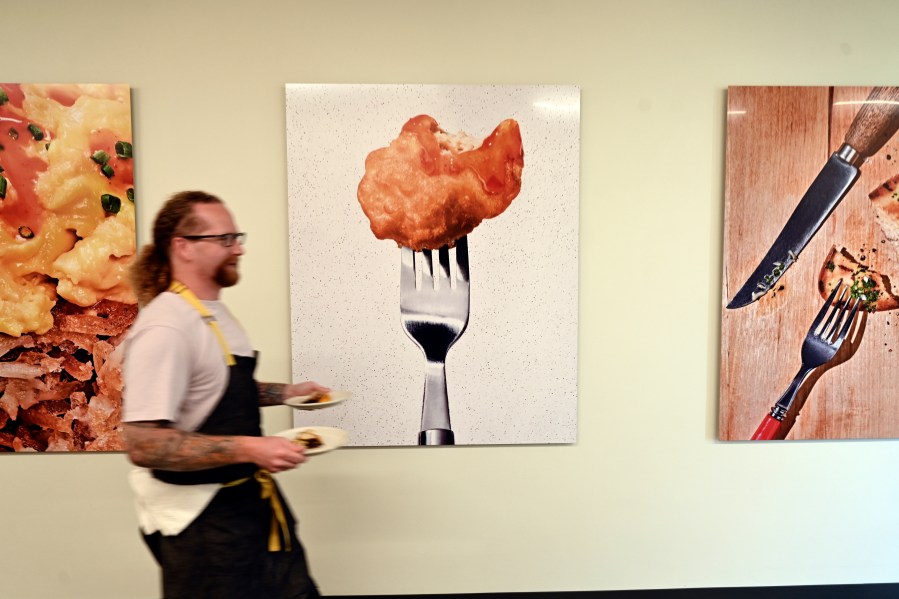Science
Texas Lab-Grown Meat Ban Sparks Legal Challenge Over Constitutionality

A new law banning the sale of lab-grown meat in Texas has triggered a legal dispute, raising questions about its constitutionality. Effective from September 1, 2023, the legislation, known as Senate Bill 261, was signed into law by Governor Greg Abbott. This move has drawn criticism from two California-based companies, Wildtype and UPSIDE Foods, who have filed a lawsuit challenging the law’s validity.
The lawsuit claims that the prohibition on lab-grown meat violates the United States Constitution, specifically the Commerce Clause. According to the plaintiffs, the law effectively shuts Texas off from an emerging industry, limiting competition that originates outside the state. They assert that this action is intended to protect local agriculture from lawful competition, which they argue is unconstitutional.
Lab-grown meat is produced by cultivating animal cells in controlled environments, allowing for the replication of meat without the need to raise and slaughter animals. Supporters, including the Good Food Institute, emphasize that this method could address global protein demands more sustainably and humanely. They argue it is nutritionally comparable to conventional meat while requiring fewer resources.
In their legal filing, Wildtype and UPSIDE Foods contend that the law undermines the Poultry Products Inspection Act, which governs the production and safety standards for meat. Marco Vasquez Jr., the attorney representing the plaintiffs, explained that any Texas regulations affecting production facilities or ingredients would conflict with federal law, rendering them unconstitutional.
The lawsuit also names Travis County as a defendant, as the county attorney must be informed of any alleged violations concerning SB 261. The companies are seeking the opportunity to sell their lab-grown products, including cultivated salmon, which was previously offered by a local sushi restaurant in Austin prior to the ban.
As of now, the Texas Attorney General’s office and the Travis County attorney’s office have not provided comments regarding the lawsuit.
Since its inception in 2013, the lab-grown meat industry has rapidly expanded, with sales permitted in several locations including Singapore, the United States, and Australia. Proponents of lab-grown meat argue that it is an environmentally friendly alternative to traditional livestock farming, while detractors express concerns about its potential impact on ranchers and food safety.
The issue of lab-grown meat is not isolated to Texas; several other states, including Alabama, Florida, Indiana, Mississippi, Montana, and Nebraska, have enacted similar bans.
As the legal proceedings unfold, the outcome could significantly influence the future of lab-grown meat production and sales, not just in Texas but across the United States.
-

 Lifestyle3 months ago
Lifestyle3 months agoLibraries Challenge Rising E-Book Costs Amid Growing Demand
-

 Sports3 months ago
Sports3 months agoTyreek Hill Responds to Tua Tagovailoa’s Comments on Team Dynamics
-

 Sports3 months ago
Sports3 months agoLiverpool Secures Agreement to Sign Young Striker Will Wright
-

 Lifestyle3 months ago
Lifestyle3 months agoSave Your Split Tomatoes: Expert Tips for Gardeners
-

 Lifestyle3 months ago
Lifestyle3 months agoPrincess Beatrice’s Daughter Athena Joins Siblings at London Parade
-

 World3 months ago
World3 months agoWinter Storms Lash New South Wales with Snow, Flood Risks
-

 Science3 months ago
Science3 months agoTrump Administration Moves to Repeal Key Climate Regulation
-

 Science2 months ago
Science2 months agoSan Francisco Hosts Unique Contest to Identify “Performative Males”
-

 Business3 months ago
Business3 months agoSoFi Technologies Shares Slip 2% Following Insider Stock Sale
-

 Science3 months ago
Science3 months agoNew Tool Reveals Link Between Horse Coat Condition and Parasites
-

 Sports3 months ago
Sports3 months agoElon Musk Sculpture Travels From Utah to Yosemite National Park
-

 Science3 months ago
Science3 months agoNew Study Confirms Humans Transported Stonehenge Bluestones









